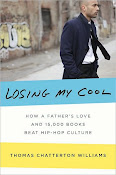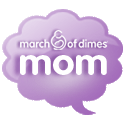 By DENENE MILLNER
By DENENE MILLNERI found the papers when I was 12—in a metal box tucked under my parents’ bed. I wasn’t supposed to be snooping all through their personal belongings; my mother had put a lock on her door, presumably to keep my brother and I from dipping into her stash of moon pies and using her pricy, smelly lotions, and discovering her and my dad’s copy of “The Joy of Sex.” But kids are experts at getting into stuff and finding the hidden, and that little flimsy lock was no match for the wits of a curious preteen and her big brother. If we wanted to see it, it was going to get seen.
But this? This I wasn’t ready for.
BABY GIRL...
DENENE MILLNER…
HEREYBY FORMALLY ADOPTED ON THIS DAY…
My fingers trembled as I brought the paper closer to my face—as if the words would magically morph into something wholly different if I just stared at them a little harder, a little longer, a little bit more closely to my 20/20s. But the words just… wouldn’t… change.
And then, suddenly, it felt like someone had fired buckshot into my chest. The shock was almost unbearable: My mom and dad weren’t my mom and dad. My brother? Not my brother, either. None of them by blood, anyway.
To this day, I can’t tell you how I got those papers back into the metal box, how I pushed that metal back under their bed, how I convinced my legs to carry me out of their room and shut the door and lock it back and act like I’d never seen those papers.
How I managed to keep their secret—my secret—for all those years.
For years—more than 20 years—I refused to acknowledge my adoption or tell my parents I knew they’d adopted me. At first it was because I was scared they’d be mad at me for snooping, but as I grew older, that morphed into my need to protect their privacy. Maybe they didn’t want to explain to everyone coming and going why they didn’t have biological babies together, or where they found me, or why my birth parents gave me up. Maybe, I reasoned, my mom and dad feared I would search for the people who abandoned me on the stoop of that New York City orphanage—that I would find them and, in turn, reject the two people who didn’t give me blood, but who truly gave me life.
I couldn’t do that to them. To me. To us. Though my birth parents deserve praise for birthing me and having the courage to love me enough to give me away, my parents get the glory for raising me, educating me, supporting me, disciplining me, and loving me beyond measure—and doing it with an enormous amount of grace and wisdom. Despite the odds. With little money. And no help. Just them.
And love.
No, there was no need to find the birth parents—it didn’t even occur to me to do so. Not until, that is, I became pregnant with my first baby.
Not knowing, you see, wreaked havoc on my health history, which, because I don’t know who my birth parents are, is basically non-existent. From the time I’ve been old enough to go to the doctor on my own, I’ve been forced to leave the “family history” part of the stacks of first-visit papers blank, which always leads to a really awkward opening conversation with my doctors, who realize pretty early on that they’ll have to treat whatever is ailing me without the extremely valuable “family health history” tools they need to figure out what might be causing my health problems. I haven’t a clue if cancer runs in my family, or diabetes, or weight problems—hypertension, stroke, gout. You name it, it could be lurking, waiting to claim me, and I will have no clue until it taps me on the shoulder and goes to work on my system.
This was most glaring while I was pregnant; neither of my ob-gyns had the valuable information they needed to help me figure out health risks for my pregnancy and, more important, my children. They knew Nick’s family’s health and were able to keep an eye out for specific Chiles family issues. But my side of it was the big unknown—you might as well have crossed an “X” across my paperwork.
And this disturbed me greatly.
I couldn’t change this in time enough for my pregnancies, and while I still have no interest in finding out who my birth parents are (wouldn’t be able to anyway, seeing as she/he/they left me on a stoop in the middle of Manhattan) I do wish that the government would change laws to at least allow adopted kids access to their health history, even if their adoption records are sealed tighter than Ft. Knox.
This doesn’t—and shouldn’t—be your story if you know who your birth parents are you’re looking to get pregnant or are pregnant. For sure, all you have to do to gather up your family health history is to start asking questions. Ask your mother and father who has/had what in their family; hit up your aunties and uncles at the next family reunion; quiz your cousins at the next barbeque. Your play aunties might even have some info—might know what your granddaddy’s brother might have had when he passed on.
Then take that information and write it down.
The March of Dimes is a fantastic resource for info on
the importance of family history, and has on its website a
downloadable family health questionnaire to help walk you through the information you should be gathering. Take a look at what the March of Dimes has to say about the
importance of genetic testing, too, to help you see into your baby’s health future.
I didn’t have this option.
You do.
Please, don’t take it for granted.
For more information on family history, genetic testing, and pre-pregnancy, pregnancy, and newborn care, please check out the March of Dimes website. This blog post was donated by MyBrownBaby to the March of Dimes as part of its March of Dimes Moms initiative.























































